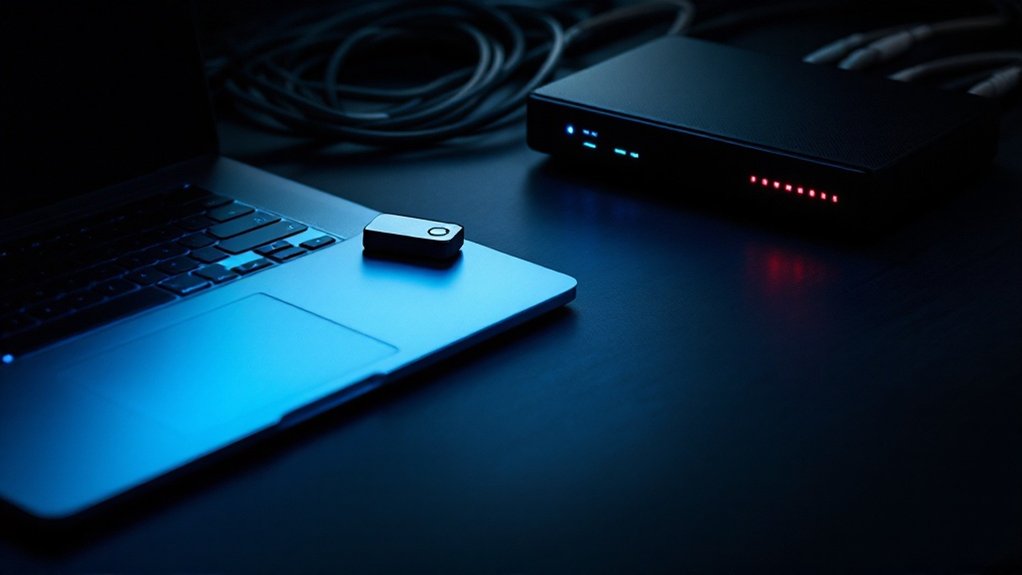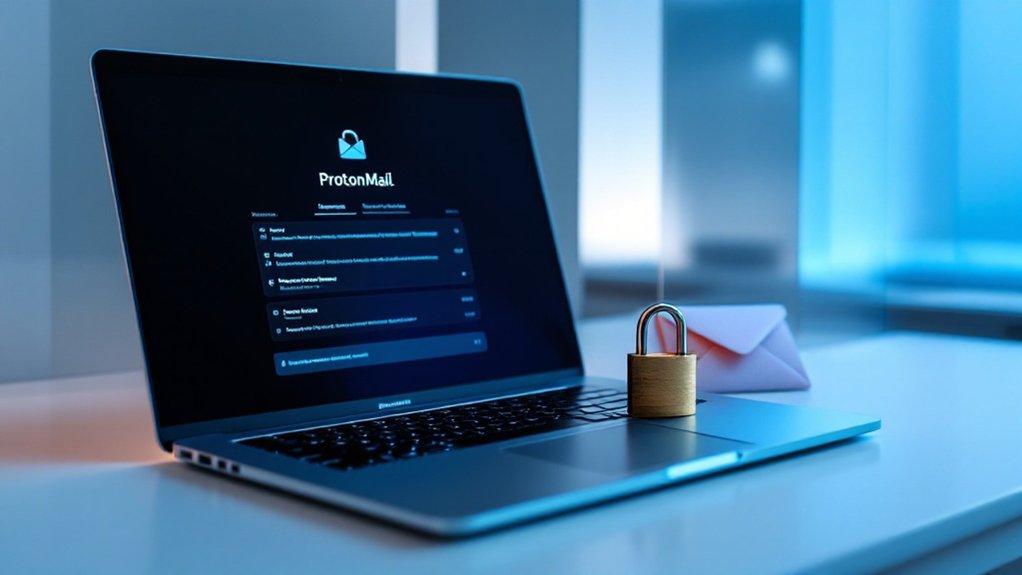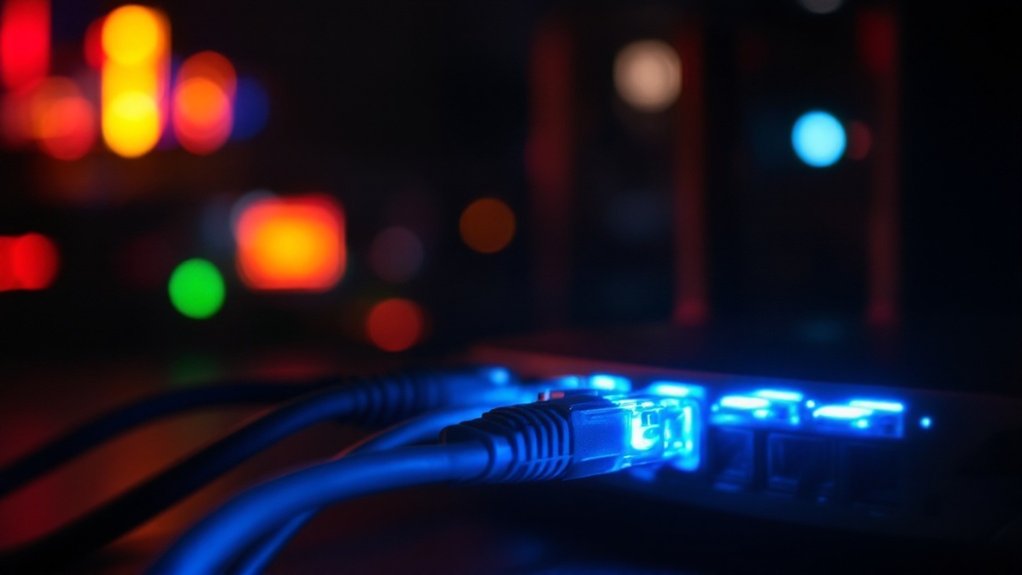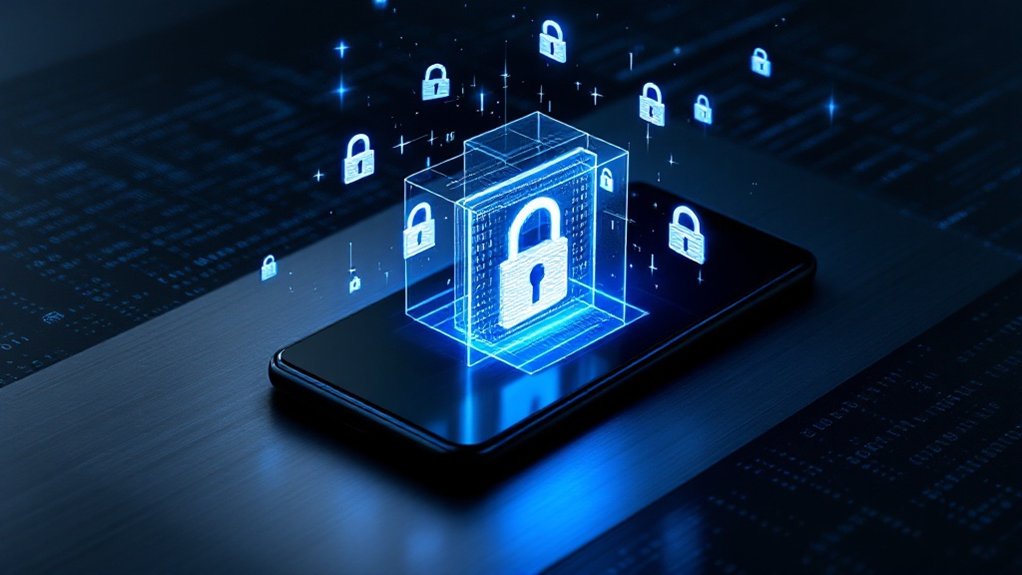Accessing the dark web safely requires multiple security measures working in tandem. Users must start with downloading the official Tor Browser, implementing a reputable VPN service like ExpressVPN or NordVPN, and maintaining updated antivirus software with active firewalls. Strong authentication practices, including complex passwords and two-factor verification, are crucial, as JavaScript should remain disabled. Safe browsing habits, cryptocurrency usage, and verified .onion URLs complete the foundational security framework, though additional protocols improve protection further.

Accessing the dark web can provide improved privacy and anonymity for users. Implementing proper security measures remains vital for safe navigation of this encrypted network. The foundation of secure dark web access begins with downloading the Tor Browser from its official website, as this specialized software routes internet traffic through multiple servers to mask user identity. Regular updates to Tor Browser and its components help maintain security protocols as well as preventing potential vulnerabilities from being exploited. The decentralized nature of overlay networks enables enhanced security through distributed routing. With 2.7 million users accessing the dark web daily, maintaining proper security protocols is essential.
Adding a Virtual Private Network (VPN) creates an additional layer of protection by encrypting internet connections and concealing IP addresses before traffic enters the Tor network. Users should select reputable VPN providers, such as ExpressVPN or NordVPN, that maintain strict no-logs policies and implement strong encryption standards. This combination of Tor and VPN technology effectively prevents entry nodes from identifying users’ true locations. Following best practices guide recommendations helps ensure maximum anonymity while exploring hidden services.
Layering VPN encryption with Tor browsing ensures maximum anonymity by masking user location data from network surveillance and tracking attempts.
Strong authentication practices form another significant element of dark web security. Users must implement unique, complex passwords for each dark web site accessed, preferably managed through a reputable password manager. When available, two-factor authentication should be activated, as surface web account credentials should never be reused in dark web environments.
Device and network security require thorough protection through regularly updated antivirus software and active firewall systems. Full disk encryption offers important protection for stored data, as well as regular malware scans help identify potential threats. Many security experts recommend maintaining a dedicated device exclusively for dark web access to minimize exposure risks.
Safe browsing habits include avoiding suspicious links, verifying .onion URLs before access, and utilizing dark web search engines like DuckDuckGo’s Tor service. Users should disable JavaScript in browser settings and remain vigilant against phishing attempts. Personal information must be strictly protected, with cryptocurrency used for any necessary transactions and encrypted messaging apps employed for communication.
Maintaining awareness of evolving cybersecurity threats and staying informed about dark web best practices helps users navigate this space safely. Dark web monitoring services can alert users to potential data breaches, and having a predetermined exit strategy guarantees quick disengagement from illegal or disturbing content.
Frequently Asked Questions
Is Accessing the Dark Web Illegal in My Country?
The legality of dark web access varies considerably by jurisdiction, with most Western nations permitting access whereas some countries impose strict restrictions.
Without knowing the specific country in question, a definitive answer cannot be provided.
In general, accessing the dark web itself is legal in most democratic nations, though any illegal activities conducted there remain criminal offenses.
Consulting local laws or legal professionals is recommended for clarity.
Can My Identity Be Traced Even When Using Tor Browser?
Although Tor Browser provides strong anonymity protections, complete untraceability cannot be guaranteed.
Advanced surveillance capabilities, traffic correlation attacks, and browser vulnerabilities can potentially compromise user identity. Government agencies, through coordinated monitoring of entry/exit nodes and timing analysis, have successfully identified some Tor users.
Moreover, malicious exit nodes may intercept unencrypted data, whereas outdated Tor versions and poor security practices increase deanonymization risks.
Should I Use a VPN With Tor When Accessing the Dark Web?
Using a VPN with Tor creates an additional encryption layer but introduces potential risks and complications.
Although VPNs can hide Tor usage from ISPs and protect against malicious exit nodes, they require trusting the VPN provider and may compromise Tor’s anonymity benefits.
Statistics show only 6.23% of Tor connections originate from VPNs, indicating most users find it unnecessary.
Security experts recommend using Tor alone except when facing specific circumstances like governmental restrictions.
What Happens if I Accidentally Click on a Malicious Dark Web Link?
Clicking a malicious dark web link can trigger immediate malware downloads, system compromises, or redirection to illegal content.
Users should immediately disconnect from the internet, run antivirus scans, and document the incident.
Vital next steps include changing passwords for important accounts, backing up crucial data, and monitoring for signs of identity theft.
Law enforcement notification may be necessary if illegal content was accessed or personal data was compromised.
How Do Dark Web .Onion Addresses Differ From Regular Website URLS?
Dark web .onion addresses consist of randomly generated 16-character alphanumeric strings, followed by the .onion top-level domain, unlike conventional URLs with recognizable domain names.
These addresses cannot be indexed by standard search engines or resolved through regular DNS servers, requiring specialized Tor browser software for access.
The complex string format provides anonymity for website operators as they make addresses virtually impossible to guess or memorize.








